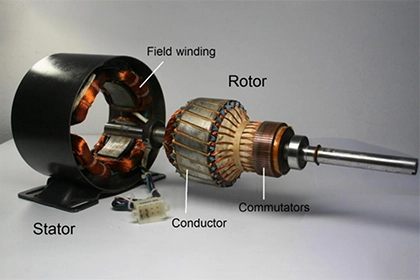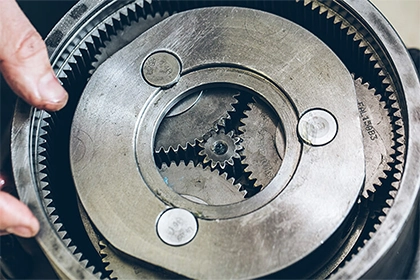
Are AC motors more efficient than DC?
AC motors and direct current motors are two kinds of electric motors that are utilized in a broad range of applications. While there are numerous distinctions between AC and DC motors, one important distinction is their efficiency. Is it true that AC motors are more efficient than DC motors? The answer is not always obvious, because the relative efficiency of AC and DC motors is affected by a variety of variables.
AC motors and DC motors are two different types of electric motors that are used in a wide variety of applications. While there are many differences between AC motors and DC motors, one key difference is their efficiency. But are AC motors more efficient than DC motors? The answer is not always clear-cut, and the relative efficiency of AC motors and DC motors depends on various factors.
What are AC motors?
AC motors are electric motors that run on alternating current (AC) power, and they are used in a wide variety of applications. AC motors work by using electromagnetic induction to generate a magnetic field, which causes the motor to rotate. There are two main types of AC motors: synchronous AC motors and asynchronous AC motors.
Synchronous AC motors are AC motors that run at a constant speed, and they are often used in applications that require precise speed control. Asynchronous AC motors are AC motors that can run at variable speeds, and they are often used in applications that require variable speed control, such as in household appliances and electric vehicles.
What are DC motors?
DC Motors are electric motors that run on direct current (DC) power, and they are also used in a wide variety of applications. DC motors work by using magnetic fields to generate a rotational force, which causes the motor to rotate. There are two main types of DC motors: brushed DC motors and brushless DC motors.
Brushed DC motors are DC motors that use physical brushes to transfer electrical current to the motor. Brushless DC motors are DC motors that use electronic components, such as transistors and sensors, to control the flow of electrical current to the motor. This eliminates the need for physical brushes, which can cause electrical losses and reduce the overall efficiency of the motor.
Are AC motors more efficient than DC motors?
The efficiency of AC motors and DC motors depends on various factors, such as the type of motor, the load on the motor, and the operating conditions. In general, AC motors are more efficient than DC motors at high speeds and light loads, while DC motors are more efficient than AC motors at low speeds and heavy loads.
For example, asynchronous AC motors are more efficient than brushed DC motors at high speeds and light loads because they do not have physical brushes, which can cause electrical losses and reduce the overall efficiency of the motor. Brushless DC motors are more efficient than synchronous AC motors at low speeds and heavy loads because they do not have physical brushes and they can control the speed and torque of the motor more precisely.
Applications of AC motors and DC motors
AC motors and DC motors are used in a wide variety of applications, including in household appliances, industrial machinery, and electric vehicles. In household appliances, AC motors and DC motors are used to power appliances such as refrigerators, washing machines, and vacuum cleaners. In industrial machinery, AC motors and DC motors are used in applications such as pumps, fans, and compressors. In electric vehicles, AC motors and DC motors are used to power the vehicle's propulsion system.
The benefits of using AC motors and DC motors in these applications depend on the specific requirements of the application. For example, AC motors may be more suitable for applications that require high-speed operation and variable speed control, such as in household appliances and electric vehicles. DC motors may be more suitable for applications that require low-speed operation and high torque, such as in industrial machinery and electric vehicles.
Conclusion
In conclusion, the relative efficiency of AC motors and DC motors depends on various factors, such as the type of motor, the load on the motor, and the operating conditions. AC motors are generally more efficient than DC motors at high speeds and light loads, while DC motors are generally more efficient than AC motors at low speeds and heavy loads. AC motors and DC motors are used in a wide variety of applications, and the benefits of using AC motors or DC motors in a specific application depend on the specific requirements of the application.



Leave a Comment